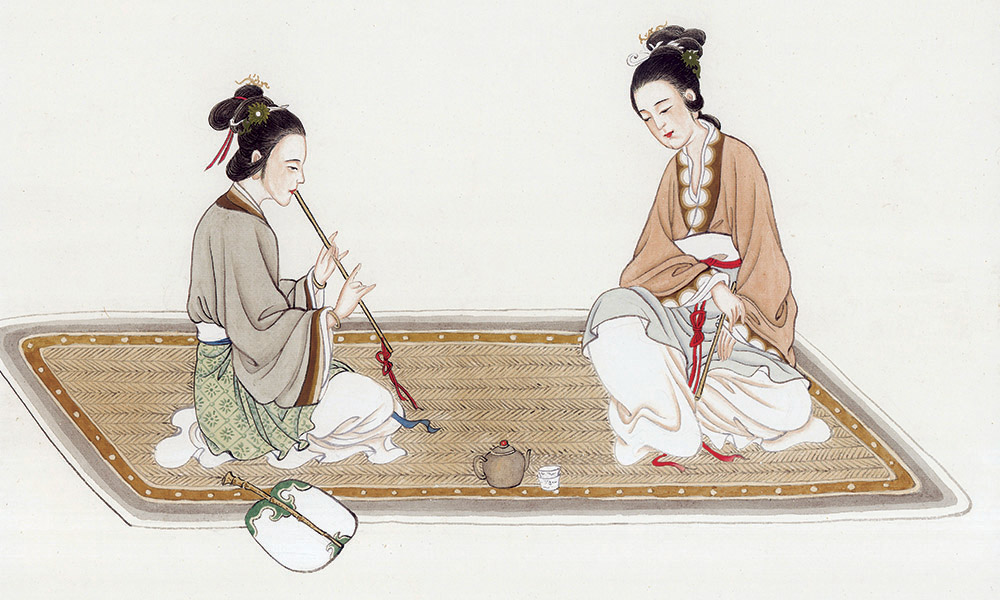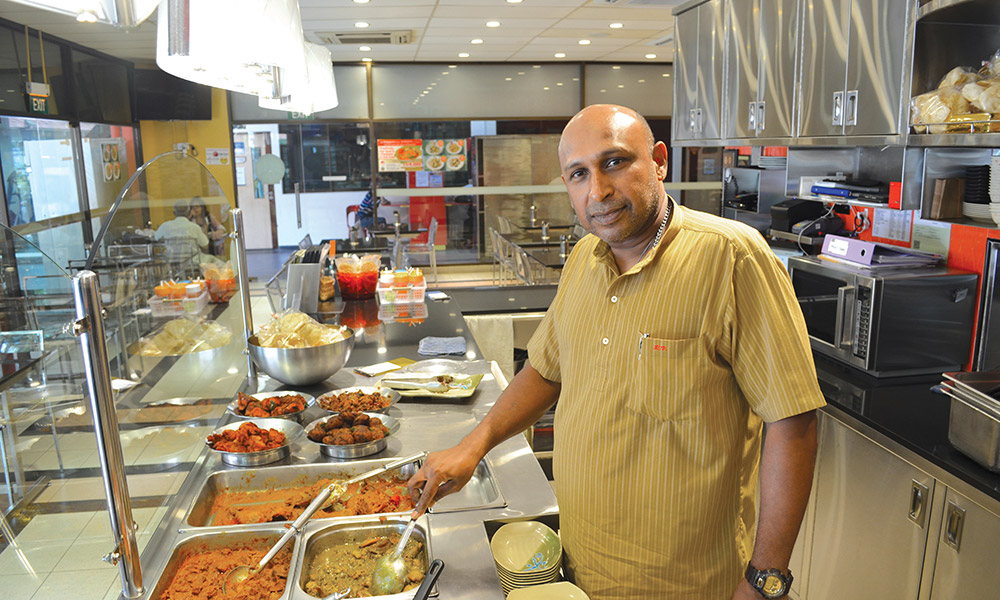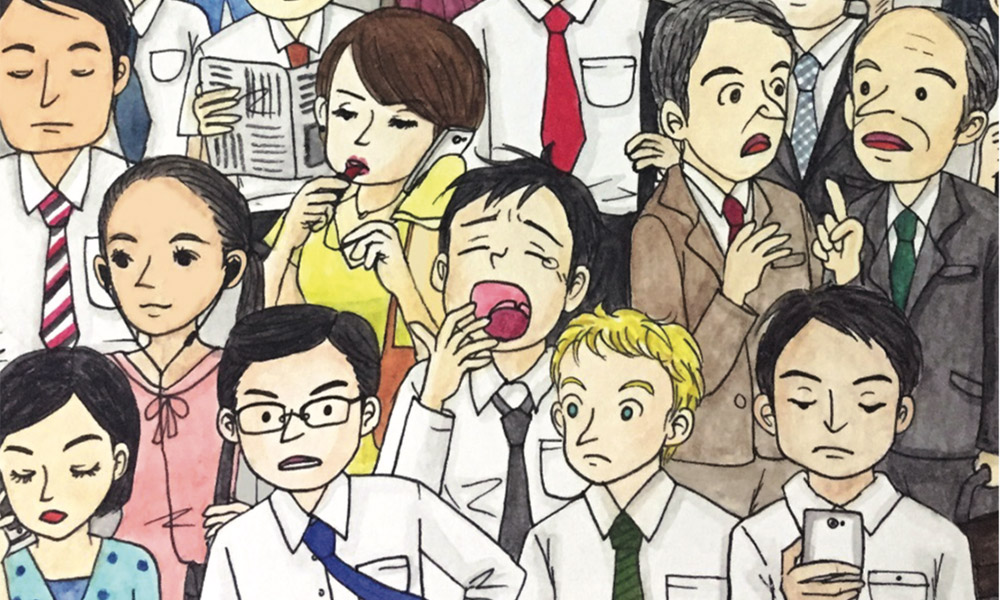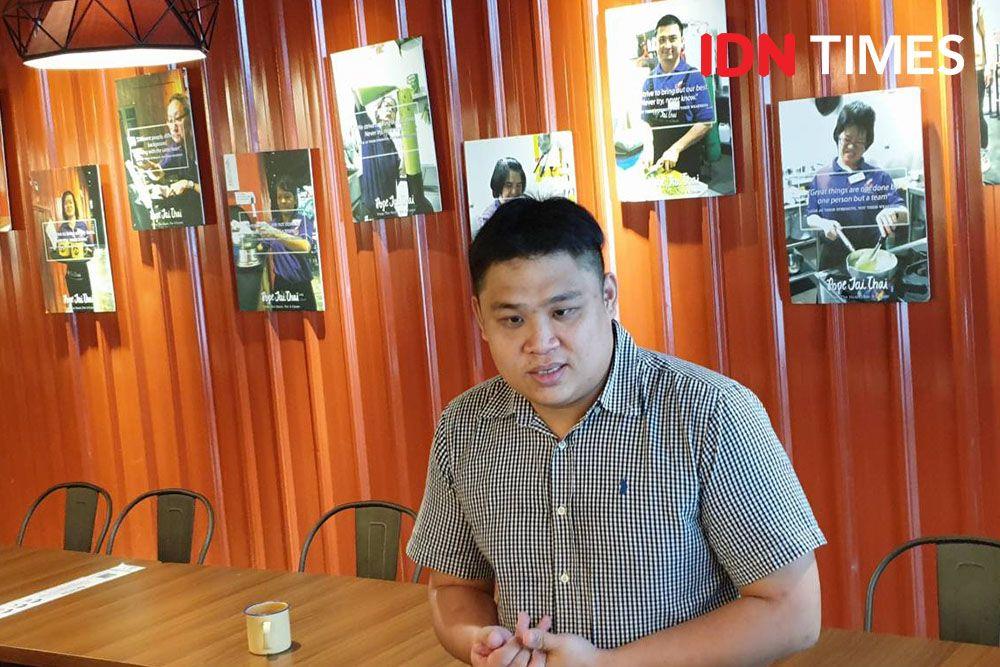By Zhou Huixin
One of the core Asian values, filial piety has shaped Chinese culture for thousands of years. It is the bonding force of the family unit, and it in turn strengthens the social fabric of society.
Since ancient times, filial piety has been considered amongst the most important values in Chinese culture. Children lacking in filial piety were denounced, but those who did were respected and upheld as role models.
Beyond being filial towards one’s own parents, spouses who demonstrate great filial piety to their parents-in-laws won even greater admiration and respect. To commemorate Mother’s Day, here are some stories of women who were role models of filial piety to their mothers-in-law.
Maligned Pang Sanchun Remains Filial to Her Mother-In-Law
The following story comes from the Biographies of Exemplary Women (Lie Nv Zhuan[列女传]) compiled in the late Han Dynasty.
During the Eastern Han Dynasty, there was a man named Jiang Shi(姜诗) and his wife Pang Sanchun(庞三春). The couple was very filial to Jiang’s elderly mother. Knowing that Jiang’s mother liked to drink fresh river water, Pang would walk seven miles daily to the Tuo River to fetch water for her. Jiang’s mother also liked to eat thinly sliced fresh fish, which the couple would regularly prepare for her.
One day, however, Jiang’s manipulative aunt sowed discord in the family, creating misunderstandings toward Pang. Instead of clarifying things, Jiang followed his mother’s advice and angrily divorced his wife.
Despite this injustice, Pang was not resentful, and instead continued to be filial to her former mother-in-law. She moved into a nunnery, where she weaved cloth for sale every day, and used the income to buy rice and meat for her former mother-in-law.
It is well-known that children learn from their parents’ example, and the couple’s seven-year-old son An An was no different. After Pang was evicted from their home, An An worried that his mother was not getting enough to eat. He thus devised a plan to steal a handful of rice grains from home every morning, which he would stash in a hole on his way to school.
When he had accumulated enough rice, An An brought the rice to his mother. Pang noticed that the rice was mixed with dirt, and asked her son where the rice came from. An An’s truthful account and filial heart moved Pang to tears.
Later, Jiang and his mother discovered they had wronged Pang. They immediately visited her at the nunnery, where they asked for her forgiveness and pleaded to her to come home.
On the day Pang returned home, a spring of water suddenly burst forth from the ground in their backyard. Miraculously, the spring water tasted exactly like the water from the Tuo River. Even more incredible was that every day, two carps would leap from the spring.
From then on, the dutiful Pang no longer had to walk seven miles daily to fetch river water for her mother-in-law. The people said that Pang’s unyielding devotion to her mother-in-law had moved the gods, who rewarded her with the extraordinary spring.
Legend goes that, one day during the war, the Eastern Han Chimei Rebel Army were passing by Jiang’s house. When the rebel leader learned this was the house of the filial Jiang family, he immediately dismounted from his horse and instructed his army to lighten their footsteps, so that they would not alarm the family as they went past.
From then on, it became a tradition for officials to dismount when they went past the house, as a gesture of respect.
Filial Woman Is Guarded by Gods
Our next story comes from the ancient book Jottings From the Grass Hut for Examining Minutiae (Yuewei Caotang Biji[阅微草堂笔记]), a collection of supernatural tales by Ji Xiaolan(纪晓岚).
The story begins with a female beggar who was found collapsed from hunger by the roadside. Despite her starved state, she refused to eat the full bowl of rice that she had obtained from begging. In a daze, she kept muttering that her mother-in-law had yet to eat.
Some passers-by helped the beggar up and curiously asked her what was going on. She then explained her story:
When she and her mother-in-law first became beggars, the female beggar followed her mother-in-law diligently and listened to her instructions, but did no more than that.
One night, the two of them were sleeping in the corner of a temple, when the female beggar heard a stern voice coming from the temple hall. “Why did you not avoid that filial woman in your path? Your yin energy caused her to fall sick, and now she has a fever and bad headache!”
Another voice explained, “I was in a hurry to deliver an urgent notice. In my haste, I did not see her in my way.”
The former voice remanded angrily, “All loyal officials and filial persons have a pillar of celestial light over their heads. How could you not have seen it?”
Following that, the beggar heard the sounds of caning and moaning. The commotion lasted a long time before the hall fell silent.
The next day, both women found out that there had indeed been a lady who had been caught in a strong, cold wind while delivering lunch to the plantation fields. She was still suffering from a raging headache. When speaking of that lady, everyone praised her for being a filial and good wife.
Moved by what she has encountered, the female beggar had since then been looking after her mother-in-law as best as she could.

Feeding Elderly Mother-In-Law With Breastmilk
The Twenty-Four Filial Exemplars is an ancient Confucian classic about filial role models in Chinese history. In it is listed the extraordinary story of Madam Tang, the grandmother of Cui Shannan(崔山南) from the Tang Dynasty.
When Cui was a young boy, Cui’s great-grandmother, Madam Sun, was very elderly and frail. She had already lost all her teeth and could not eat any solid food.
Cui’s filial grandmother, Madam Tang, took great care of Madam Sun. After giving her mother-in-law her daily bath, Madam Tang would express milk from her own breast to feed her mother-in-law. The milk gave Madam Sun enough nutrition to sustain her, and added years to her life.
When Madam Sun was on her deathbed, she gathered the whole family and told them she had no way of repaying her daughter-in-law. Madam Sun’s only wish was that her granddaughters-in-law and great-granddaughters-in-law would follow in Madam Tang’s footsteps, and be just as filial to Madam Tang as Madam Tang had been to her.
Later, Cui Shannan became a high ranking official and remained very filial to his grandmother Madam Tang, just as Madam Sun had wished.
Despite being a grandmother herself, Madam Tang continued to serve her mother-in-law dutifully till the end. She set an example for her family of four generations, who witnessed how devotedly their grandmother served her mother-in-law. It is thus no surprise that her children and grandchildren became models of filial piety as well.
Filial Lady Receives a Thousand Wen
In the book The Dao of Accumulating Blessings and Avoiding Disasters, there is a story from the Song dynasty about a lady named Madam Wu. Madam Wu’s husband passed away not long after they were married, and they had no children. However, she remained very filial toward her mother-in-law, who was quite elderly and suffered from poor eyesight.
At first, Madam Wu’s mother-in-law worried that her daughter-in-law would be lonely, and considered adopting a foster son for her daughter-in-law to marry. But when Madam Wu learned about this, she cried and told her mother-in-law that respectable women did not remarry. Therefore, it was her duty alone to look after her mother-in-law.
Madam Wu struggled to make ends meet for her small family, and she earned money by doing needlework for her neighbours. At times, her neighbours would give her some delicacies, which she would bring home to share with her mother-in-law.
Once when Madam Wu was cooking rice, her neighbour came over asking for her help urgently. After Madam Wu left with her neighbour, her mother-in-law took the rice pot off the stove and placed it in a box, as she was worried the rice would be overcooked. However, as she could not see clearly, she misplaced the rice pot in the garbage bin.
When Madam Wu returned, she noticed the misplaced pot. Without saying a word to her mother-in-law, she hurried over to her neighbour’s and borrowed some clean rice for her mother-in-law to eat. Meanwhile, she picked up and washed the rice in the garbage bin, and cooked it for herself.
That night, Madam Wu dreamt of two boys in green, who floated down from the clouds to meet her. They brought her to the Heavenly King, who commended her for serving her mother-in-law so faithfully, in spite of their hardship and poverty.
“I will reward you with a thousand wen (an ancient Chinese currency unit) to help you look after your mother-in-law,” said the Heavenly King. “In this way, you will no longer need to work so hard to get by.” He then ordered the two boys to take her home.
When Madam Wu woke up, she found a thousand wen lying beside her on the bed. Mysteriously, whenever she had spent the thousand wen, another thousand wen would appear by her bedside.
Woman Risks Her Life to Save Mother-in-law
In the New Records of the Tang, there is a story about Madam Lu, wife of Zheng Yizhong(郑义宗). Born to a big family from Fanyang(范阳), Madam Lu was very filial and respectful to her in-laws.
One night, an armed robber broke into their home. Everyone hid except her mother-in-law, who could not hide herself in time. At that moment, Madam Lu stood by her side to protect her. In the end, she was almost beaten to death by the robber.
After the robber had left, everyone asked Madam Lu why she had been so courageous. She replied, “When neighbours need our help during emergencies, we should extend a helping hand. If we are expected to help our neighbours, one shouldn’t even question helping our own family. How could I leave my mother-in-law alone? If she had met with any mishap, I wouldn’t have been able to live myself.”
















